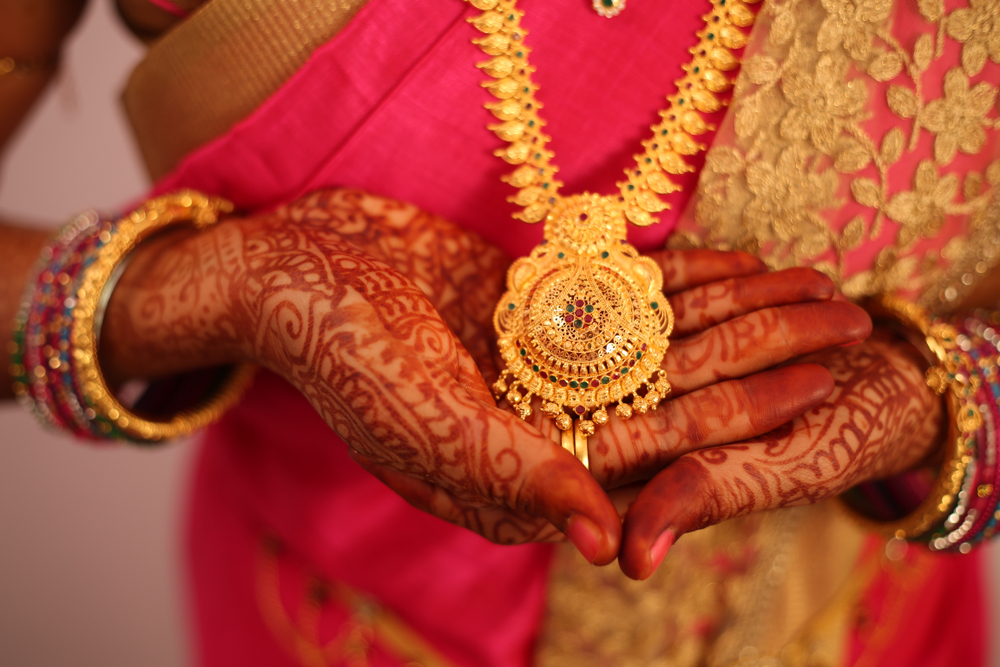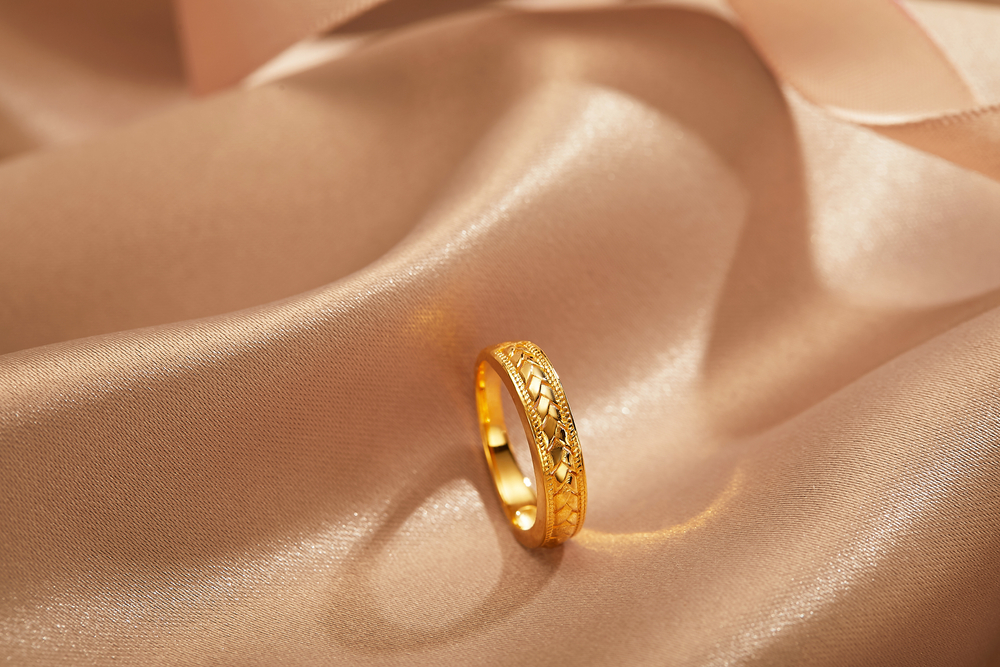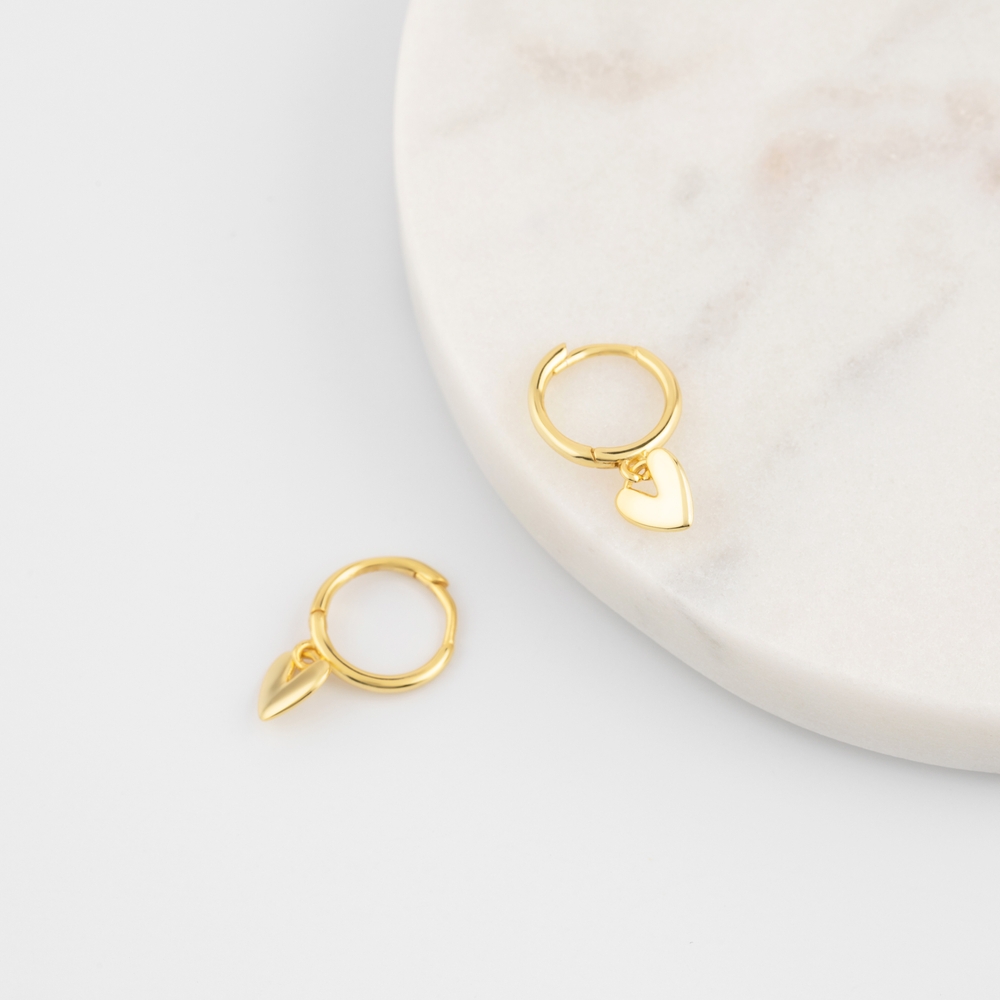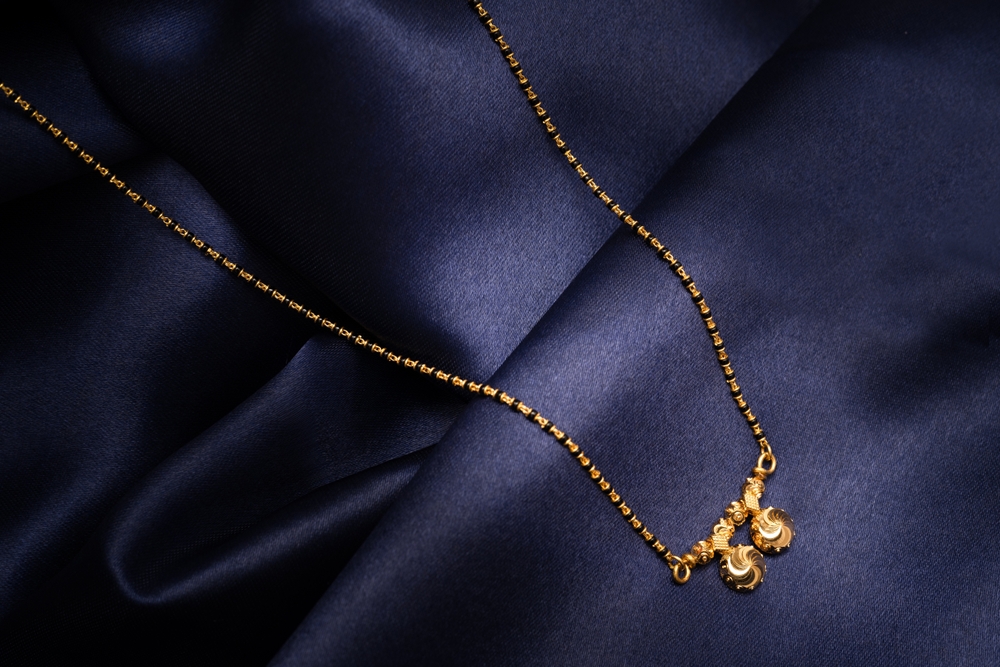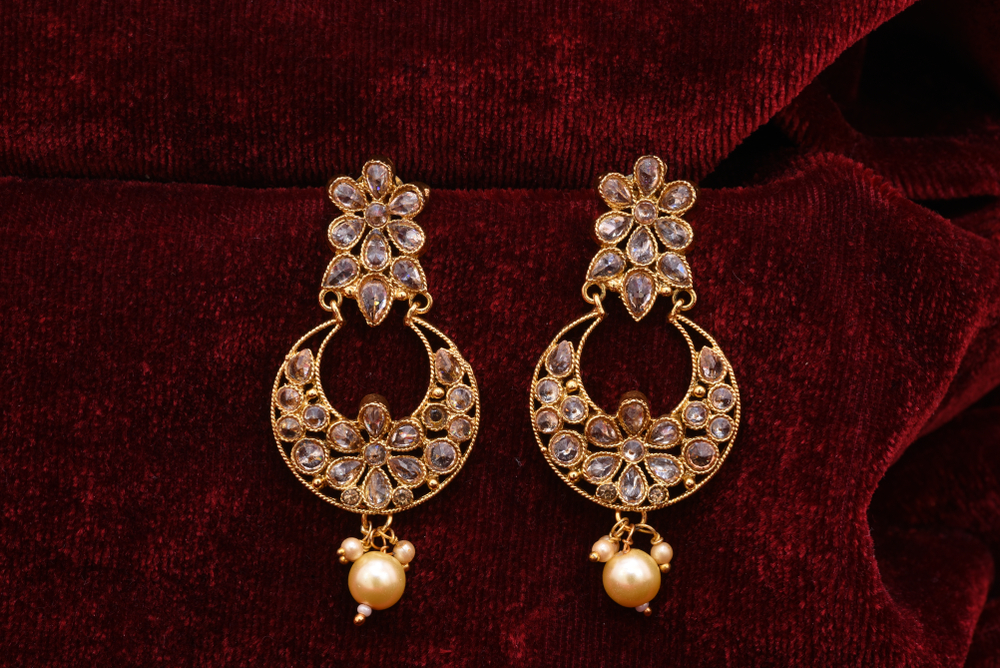Introduction
The cultural significance of gold has been revered across cultures as a symbol of love, unity, and prosperity. Its timeless attraction transcends borders, making it a cherished element in various traditions and ceremonies. From ancient rituals to modern-day celebrations, gold continues to play a significant role in expressing commitment and devotion. At Aarchievgold, we celebrate this enduring legacy, offering pieces that capture the essence of these traditions. As we explore the significance of gold, we see how it not only adorns but also tells stories of love that span generations. This blog delves into the cultural significance of gold across different regions, highlighting its importance in weddings and other significant life events.
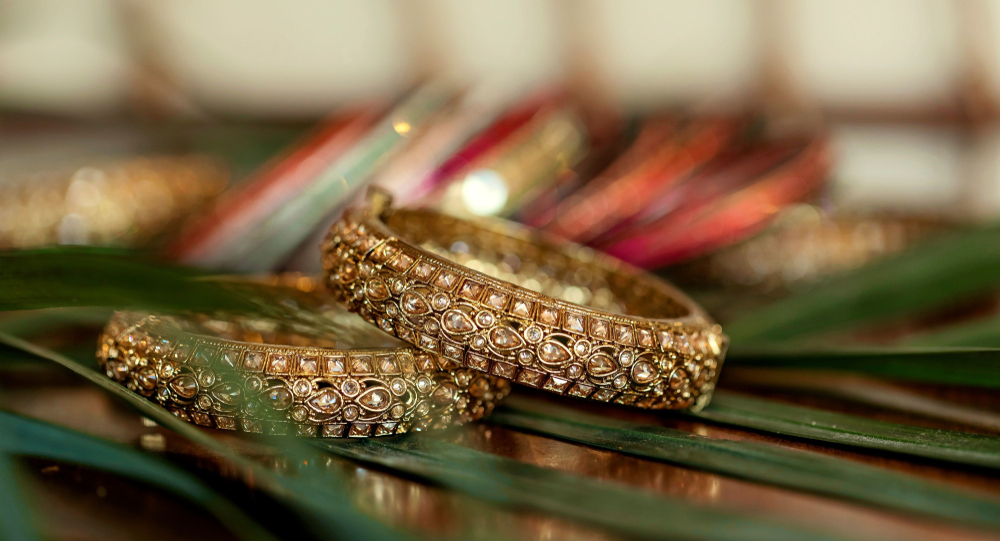
India: Gold as a Symbol of Prosperity and Divine Blessing
In India, gold is deeply intertwined with cultural beliefs and traditions, especially in the context of marriage. It is more than just a material possession; it embodies the hopes and dreams of families for their children’s future.
The Tradition of Gifting Gold to Brides: Significance and Beliefs
Gold is traditionally gifted to brides as a symbol of prosperity and divine blessing. Families often present gold jewellery during weddings, believing it brings good fortune and happiness to the couple. This practice reflects the cultural significance of gold as not just a material possession but a representation of familial love and support. The act of gifting gold reinforces bonds between families, enhancing the sense of community during the celebration.
Mangalsutra and Other Gold Ornaments: Representing Marital Harmony
The mangalsutra, a sacred necklace made of gold worn by married women, symbolizes marital harmony and commitment. It is an essential part of Indian wedding customs, signifying the bond between husband and wife. Other gold ornaments worn during weddings further enhance this symbolism, representing the couple’s unity and shared prosperity. These pieces often carry intricate designs that tell stories of heritage, making them treasured family heirlooms passed down through generations.
China: Gold for Good Fortune and Protection
In Chinese culture, gold holds immense significance, particularly during weddings. It is seen as a powerful talisman that attracts good luck and wards off negative energies.
Gold’s Role in Chinese Wedding Customs and Symbolism
Gold is synonymous with good fortune and happiness in Chinese traditions. During weddings, couples often exchange gold jewellery as a token of their love and commitment. This practice underscores the cultural significance of gold as a means of ensuring a prosperous future together. The act of exchanging gold also symbolizes the merging of two families, reinforcing social ties within the community.
Intricate Designs Like Dragons and Phoenixes: Symbols of Harmony and Prosperity
Chinese gold jewellery often features intricate designs such as dragons and phoenixes, symbols of harmony and prosperity. These motifs not only enhance the beauty of the jewellery but also reflect deep-rooted cultural beliefs about balance and unity in marriage. The craftsmanship involved in creating these pieces showcases the skill of artisans while preserving cultural narratives that have been passed down through generations.
Middle East: Gold as a Measure of Wealth and Status
In many Middle Eastern cultures, gold is seen as a crucial element in expressing wealth and honoring tradition. Its value goes beyond aesthetics; it represents social status and familial pride.
Dowries and Bridal Gold: Honoring Family and Tradition
The practice of giving doweries in gold is prevalent in Middle Eastern weddings. This tradition honors family heritage while signifying the groom’s commitment to providing for his bride. The amount of gold gifted often reflects the family’s status within the community. Such practices reinforce social structures while ensuring that traditions are respected across generations.
The Use of Gold jewellery as a Means of Safeguarding Wealth
Gold jewellery serves not only as adornment but also as a means to safeguard wealth. In times of economic uncertainty, families often rely on their gold possessions for financial security, further emphasizing its cultural significance. This dual role highlights how gold can function both as an investment and a cherished family treasure that carries emotional value.
Africa: Gold as a Sacred Element in Marriage Ceremonies
In various African cultures, gold plays an essential role in marriage ceremonies. It is often viewed as a sacred element that connects individuals to their ancestors.
Gold jewellery in African Tribes: Reflecting Beauty and Status
Gold jewellery is often worn by brides in many African tribes, symbolizing beauty, status, and wealth. The intricate designs reflect the rich cultural heritage of these communities while also serving as a means to showcase familial pride. Each piece tells a story about the family’s history, making it an integral part of their identity.
How Gold Represents Fertility, Unity, and the Community’s Blessings
Gold is also seen as a symbol of fertility and unity within African cultures. During marriage ceremonies, it is believed that wearing gold brings blessings from the community, reinforcing the idea that marriage is not just a union between two individuals but also between families. This communal aspect highlights how deeply intertwined personal relationships are with broader societal values.
Europe: Gold Rings and the Tradition of Eternal Love
In Europe, gold rings hold profound significance in wedding traditions. They are often viewed as tangible representations of promises made between partners.
The Significance of Gold Wedding Bands in European Customs
Gold wedding bands are exchanged as symbols of eternal love and commitment. The circular shape represents infinity, while the use of gold signifies purity and strength. This practice highlights the cultural significance of gold as an enduring symbol in marital relationships. The choice to use gold reflects not only aesthetic preferences but also deep-rooted beliefs about fidelity and loyalty.
How Purity and Eternity are Symbolized Through Gold
The purity associated with gold enhances its symbolism in love; it reflects the couple’s commitment to each other throughout their lives. In many European cultures, this exchange marks not just a legal union but also a spiritual commitment between partners. This duality emphasizes how love can be both practical and transcendent, much like the metal itself.
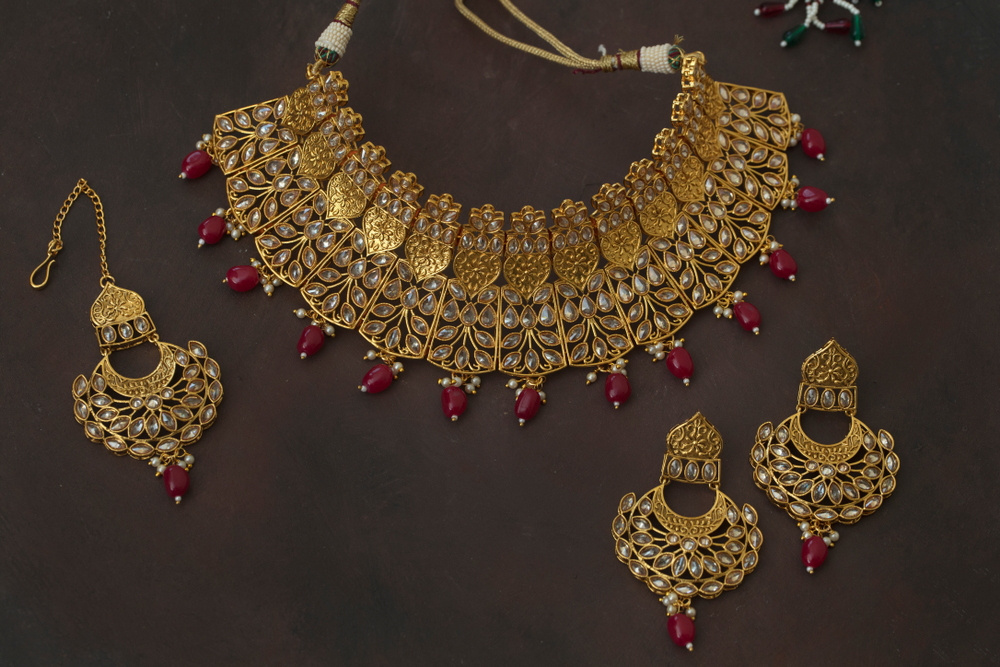
Latin America: Gold as a Symbol of Heritage and Unity
In Latin America, traditional practices involving gold highlight its role as a symbol of shared wealth and cultural heritage.
Traditional Gold Coins (Arras): Representing Shared Wealth and Prosperity
The exchange of areas (gold coins) during weddings signifies shared responsibilities between spouses. This practice illustrates the cultural significance of gold as it binds couples together financially while promoting equality within marriage dynamics. Each coin exchanged serves as a reminder that both partners contribute equally towards building their future together—a powerful statement about partnership rooted in cultural values.
The Unique Influence of Indigenous and Colonial Heritage on Gold in Weddings
Latin American wedding traditions often blend indigenous customs with colonial influences, creating unique expressions involving gold that celebrate unity while honoring diverse heritages. These influences can be seen in both design elements used for jewellery as well as rituals performed during ceremonies today; they reflect rich histories shaped by various cultures over time while emphasizing community bonds through shared practices involving precious metals like gold.
Modern Interpretations: Blending Cultural Gold Traditions with Contemporary Style
As society evolves, so do traditions surrounding gold in weddings. Modern couples often seek ways to integrate their unique stories into these age-old customs.
How Modern Couples Honor Heritage with Gold in Weddings
Many modern couples choose to incorporate traditional elements into their weddings by using gold jewellery that reflects their heritage. This blend allows them to honor their cultural significance while adding personal touches that resonate with their unique stories. By doing so, they create new traditions that respect past customs while embracing contemporary aesthetics.
Fusion Weddings: Celebrating Diverse Traditions with Gold jewellery
Fusion weddings have become increasingly popular, where couples from different backgrounds celebrate their diverse traditions through shared customs involving gold. This approach not only highlights the cultural significance of gold but also fosters unity among families from different backgrounds. Such celebrations serve as beautiful reminders that love knows no boundaries; it thrives on diversity.
Conclusion
Gold’s cultural significance remains profound across various societies worldwide. Its role in love and commitment continues to evolve while retaining its essence as a symbol of prosperity, unity, and divine blessing. Whether through traditional practices or modern interpretations, gold serves as an enduring reminder of our shared values surrounding love and commitment.
As we celebrate these customs around the globe, it becomes clear that gold’s cultural significance transcends mere material value; it embodies our hopes for prosperity, unity, and eternal love across generations.
If you’re looking to add a touch of elegance and cultural significance to your wedding, consider exploring the exquisite collection at the Aarchievgold website. Our handcrafted pieces celebrate the rich traditions of gold while offering modern designs perfect for your special day.
FAQs
Why is gold considered important in wedding traditions?
Gold symbolizes prosperity, unity, and commitment across various cultures. It is often used in wedding ceremonies to represent the couple’s shared future and familial blessings.
How does gold vary in significance across different cultures?
In Indian weddings, gold represents divine blessing and prosperity, while in Chinese culture, it symbolizes good fortune. Each culture incorporates gold in unique ways that reflect their values and beliefs.
What role does gold jewellery play in weddings?
Gold jewellery is not only an adornment but also a vital part of wedding rituals. It often includes pieces like wedding bands, mangalsutras, or intricate designs that carry cultural meaning and family heritage.
How do modern couples incorporate gold into their weddings?
Many modern couples blend traditional gold elements with contemporary styles, honoring their heritage while creating personalized expressions of love through custom jewellery and fusion ceremonies.

